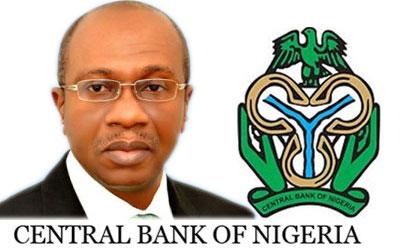Nigerian banks are currently facing difficult operating environment typified by flight to safety by customers over growing charges, pressure on the naira, limited access to foreign currency and policy unpredictability, among others.
But the new worries now are customers’ preference for investment in foreign currency due to the volatility in the foreign exchange market and the fact that hike in the monetary policy Rate would mean paying higher on what they get from the Central Bank of Nigeria (CBN).
It will mean customers demanding higher rate as fixed instruments such as bonds and treasury bills are becoming more attractive.
For instance, customers have renewed their interest in the two-year savings bond introduced by the debt management office (DMO) in 2017, and targeted at the retail investor with yields on offer as high as between 9 and 13 percent and minimum subscription levels of N5,000.
Savings bonds are debt instruments offered by the government with the aim of mobilizing resources from the general public.
The rationale behind the issuance of the savings bond by the FGN is to deepen the national savings culture, to diversify funding sources for the government and establish a benchmark for other issuers.
Of recent, some investment and stockbroking firms have intensified their marketing efforts.
“Dear Esteemed Client, We are delighted to inform you that the offer for the Sixtieth (60th) series of the FGN savings bond will be coming up between the 6th of June 2022 and 15th of June 2022 and Investment One Stockbrokers Int’l Ltd as a Distribution Agent (DA) for the bond, will be receiving applications from the investing public starting from the 6th of June 2022.“
The wider acceptability of the bond is posing a problem for deposit money banks (DMB), which currently pay little to nothing on savings deposits, by raising their cost of funds.
Consequently, at nine percent for instance, the yield is very attractive for the average retail investor who is earning about two percent per annum on savings accounts or under five percent on term deposits.
And should banks decide to eventually raise deposit rates, their net interest margins (NIMs) will shrink.
Currently, the banks charge as high as 25 percent or even more in sone cases, on customer loans and pay as low as two percent on deposits, thereby ensuring juicy spreads.
With Inflation, being speculated to reach 18 percent this year, the new savings bond and opportunities created by volatility in the foreign exchange market coupled with dysfunctional and fragmented exchange rates, banking intermediation could inadvertently be reducing gradually as well as boost real returns for millions of bank customers with savings accounts.
Despite CBN’s efforts at saving the naira through increased interventions in the foreign exchange interbank market and increase supply of foreign exchange, sentiment for the sector has not improved
According to Bismarck Rewane, chief executive of Financial Derivatives Company, (FDC), “total intervention so far is estimated at 6.8trn, 3.9 percent of GDP and this has produced limited investment multiplier effect because of government sub-optimal activity.“
This is because value of the naira is languishing as forex scarcity bites harder even as all major sources of forex decline.
The nation’s foreign reserves are not faring better as they are presently hovering below the threshold CBN sets to achieve in mid-2022.
Available data from the apex bank, as of June 9, shows external reserves at $38.52 billion.
The CBN Governor, Godwin Emefiele, laid it on thick that Nigeria’s foreign reserves would surpass $42 billion by the middle of this year.
At the France-Nigeria Security and Economic Summit in Paris, France, held in November last year, Emefiele assured Nigerians and the international community of CBN’s determination to grow the reserves to exceed the $42 billion mark.
The last time external reserves hit $42.05 billion was on September 26, 2019.
Mid-2022 is here, external reserves have dropped far behind the figure it was in November 2021 when Emefiele made the commitment about his administration’s ability to pump up the reserves.
As of November 30, 2021, gross external reserves were at $41.19 billion. When compared to the figure ($38.52) as of June 9, the reserves have dropped by 6.48 per cent or $2.67 billion.
This is despite improvements on the prices of crude oil in recent times.
According to Bismarck in the current publication of LBS Breakfast meeting, “CBN defends the naira with $3.36bn in two months, with no impact on parallel market
Other highlights include commercial banks already rationing available forex for personal travel
allowance (PTA), business travel allowance (BTA), and payment of
international schools fees.“
Amid all these, Nigeria’s debt grew to N41.6 trillion in the first quarter ended March (Q1 2022), an increase of N2.05 trillion versus N39.56 trillion in Q4 2021.
The debt rose to $100.1 billion, as seen from the latest Debt Management Office (DMO) report.
Total public debt includes new domestic borrowing by the federal government to partly finance the 2022 budget deficit
It also includes $1.25 billion Eurobond issued in March 2022 and loans taken from multilateral and bilateral lenders.
And there were increases in the debt of states and the Federal Capital Territory (FCT)
